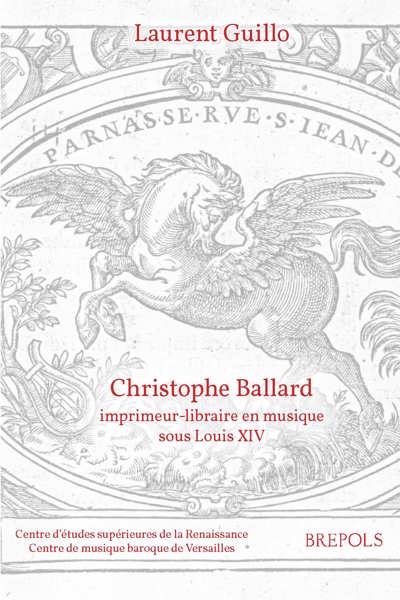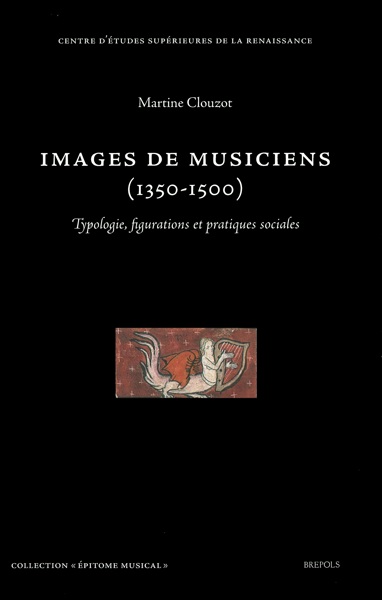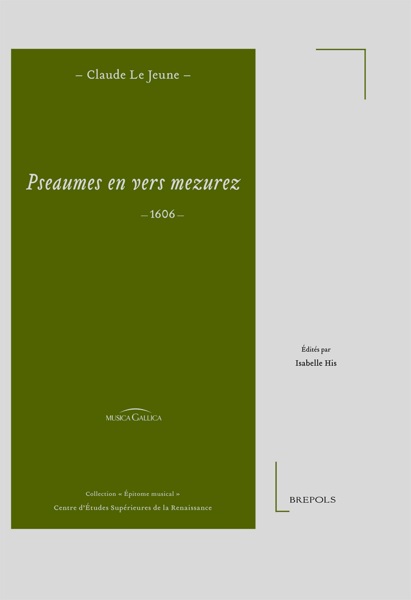
Fragmenta Musicae
Contemporary Perspectives
João Pedro d'Alvarenga, Manuel Pedro Ferreira, Alberto Medina de Seiça (eds)
- Pages: 542 p.
- Size:178 x 254 mm
- Illustrations:10 b/w, 67 col., 33 tables b/w., 2 tables col., 90 musical examples
- Language(s):English
- Publication Year:2025
- € 75,00 EXCL. VAT RETAIL PRICE
- ISBN: 978-2-503-61300-0
- Paperback
- Available
- ISBN: 978-2-503-61301-7
- E-book
- Available
This volume brings together twenty studies that deal with a varied range of disjecta membra, including loose folios from dismembered manuscripts, mutilated musical-liturgical codices, incomplete sets of part-books, truncated musical settings, and even the remains of a historic organ, with the aim of investing them with significance beyond their condition as fragmented cultural artefacts by exploring their texts, contexts, meanings, trajectories and, when appropriate, proposing methods for their reconstitution.
João Pedro d’Alvarenga is a Principal Researcher at the School of Social Sciences and Humanities at Lisbon NOVA University. He has served as Coordinator of the Early Music Studies Research Group and as Executive Secretary of the Board of CESEM – Centre for the Study of the Sociology and Aesthetics of Music. He also co-coordinated the ‘Archives’ Thematic Line at IN2PAST – Associate Laboratory for Research and Innovation in Heritage, Arts, Sustainability, and Territory. His research has focused mainly on Aquitanian-Iberian medieval chant and its sources, keyboard music, and Iberian polyphony from around 1500 to the early decades of the eighteenth century.
Manuel Pedro Ferreira is a Full Professor at the School of Social Sciences and Humanities at Lisbon NOVA University and serves on the Board of Directors of IN2PAST – Associate Laboratory for Research and Innovation in Heritage, Arts, Sustainability, and Territory. He chaired CESEM from 2005 to 2023. He has edited twelve books, authored ten others, and published over 140 scholarly papers. He is an elected member of the Academia Europaea and served as Director-at-Large of the International Musicological Society from 2012 to 2022.
Alberto Medina de Seiça is a Postdoctoral Research Fellow at CESEM – Centre for the Study of the Sociology and Aesthetics of Music at Lisbon NOVA University, a member of the executive team for the project ‘Thematic History of Music in Portugal and Brazil’, and Editor of the Portuguese Early Music Database. He holds a Doctorate in Musicology, with a dissertation on late plainchant.
This volume stems from a research project on medieval and sixteenth-century fragments with music carried out at CESEM–Centre for the Study of the Sociology and Aesthetics of Music, Lisbon Nova University, between 2021 and 2024, as well as from an international colloquium on fragmentology held in Cascais, Portugal, in July 2023. It brings together twenty studies that address a varied range of disjecta membra, including loose folios from dismembered manuscripts, mutilated musical-liturgical codices, incomplete sets of part-books, truncated musical settings, and even the remains of a historic organ. The aim is to invest these materials with significance beyond their condition as fragmented cultural artefacts by exploring their texts, contexts, meanings, trajectories and, when appropriate, proposing methods for their reconstitution.
Introduction
I. Fragments in Collections
Fragments at a Crossroad of Disciplines: The Case of the Liber Demetrii de Lasko
Zsuzsa Czagány
Reflected and Refracted: A Fragment Collection from Trier
Anna de Bakker
Eighteenth-Century Musical Fragmentology and Early-Modern Musical Historiography
Giovanni Varelli
II. Fragments and Contexts
Fragments and Places: Establishing Connections
Manuel Pedro Ferreira
Vestiges from the Time Before the Reformation of Subiaco-Melk
David Merlin
Contextualising a Polyphonic Fragment: The Salve regina by Dom Bento in Coimbra MM 12
Bernadette Nelson
III. Wandering Fragments
The Journey of Liturgical Fragments from England, France, Germany, and Italy to Coimbra: A Contribution to Book History in Portugal
Océane Boudeau and Kristin Hoefener
Lost, Then Found in Canada: Stories Behind Some Medieval Manuscript Fragments that Have Journeyed Across the Ocean
Debra Lacoste
IV. Studies on Fragments
The Earliest Plainchant Fragments of Hungarian Provenance? Interpreting Two Twelfth-Century Troper-Proser Leaves from Šibenik
Gabriella Gilányi
New Insights into a Thirteenth-Century Fragmentary Breviary: The Case of MS Porto 1151
Diogo Alte da Veiga
Fragments on the Margins of an Antiphoner
Kathleen Nelson and Nathan Cox
Fragmentary Motets in Coimbra Sources from the 1570s
João Pedro d’Alvarenga
V. Studies with Fragments
The Pentecost Responsory Erant omnes apostoli, its Borrowed Melismas, a Rare Prosula, and Portuguese Fragments Containing It
João Pedro d’Alvarenga
Some Rare Responsory Verses in Portuguese Fragments: A CANTUS-based Assessment
Giulio Minniti
From London to Portugal: Musical Notation as a Marker of Identity
Susan Rankin
Iberian Liturgical Offices Celebrating Military Successes: Echoes of Victory in a Plainchant Fragment (Coimbra, Arquivo Histórico Municipal, B60/36)
Alberto Medina de Seiça
Extrapolating from Fragments: A Portuguese Case Study
Owen Rees
VI. Reconstructing from Fragments
A Data-Based Approach to the Reconstruction of Missing Voice-Parts in Seventeenth-Century Polyphony
Ana Silva Sousa and Nuno de Mendonça Raimundo
The Collection of Latin Sacred Music in P-BRad MS 964: Identification and Reconstitution of its Contents
Andrew Woolley
In Search of a Lost Sound: Intervention Options Towards the Fragmented Material of a Historic Organ
João Vaz and André Ferreira
Contributors
List of Manuscript and Archival Sources
Bibliography
Index




